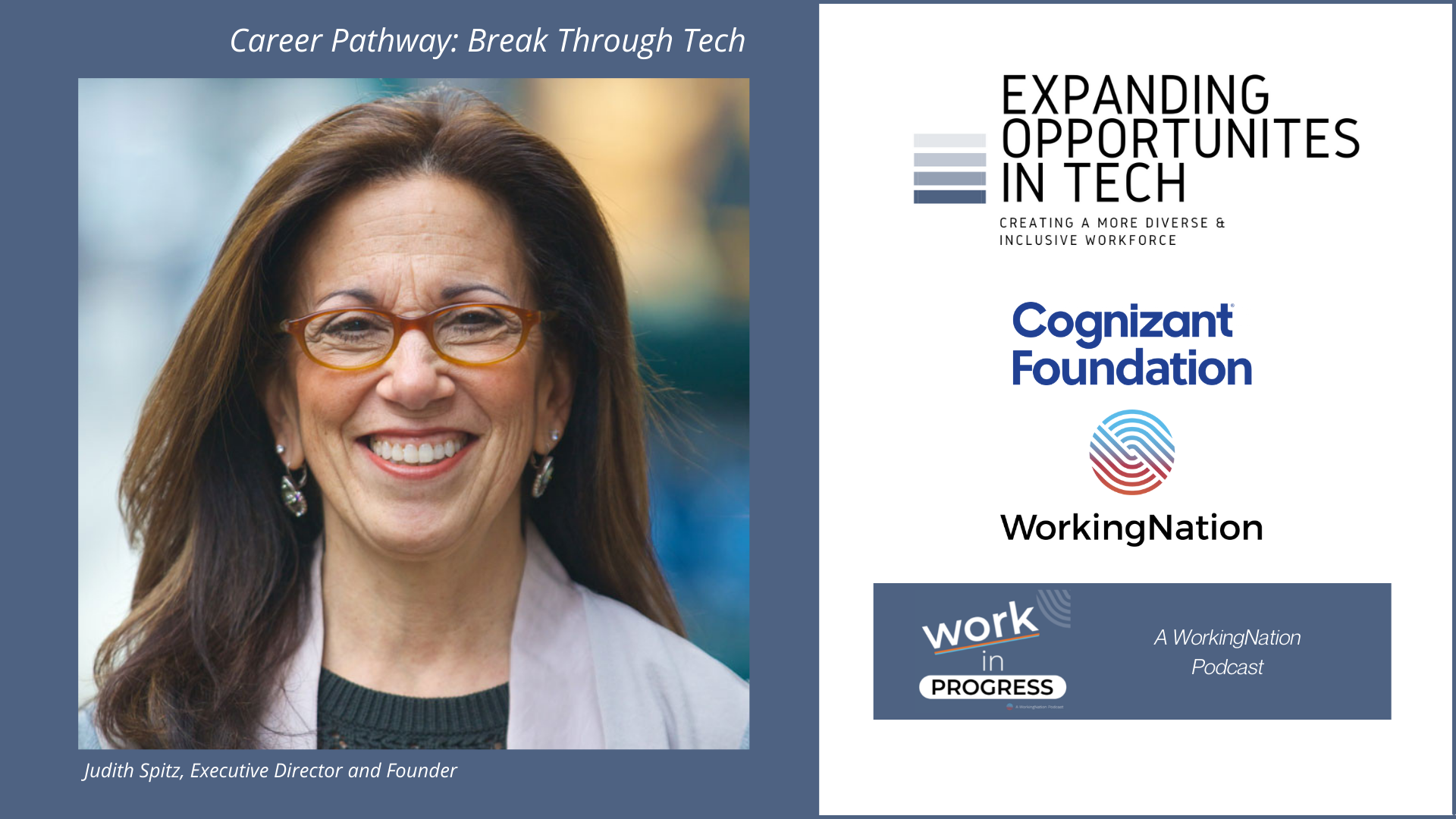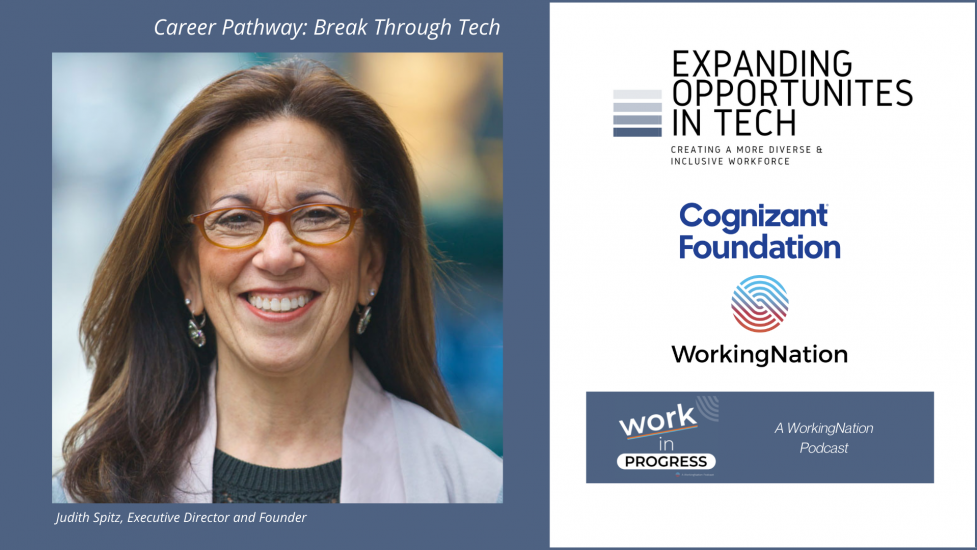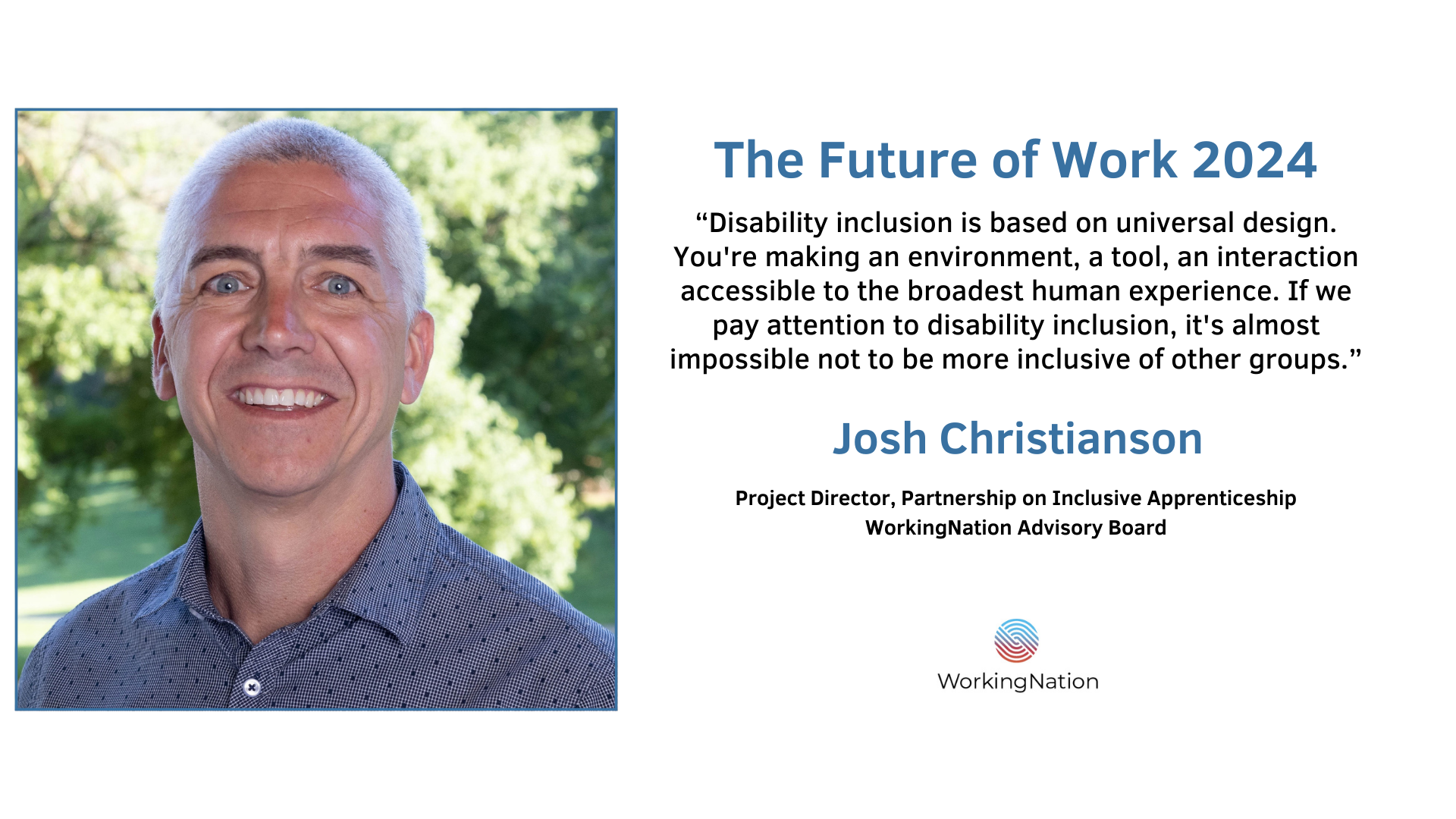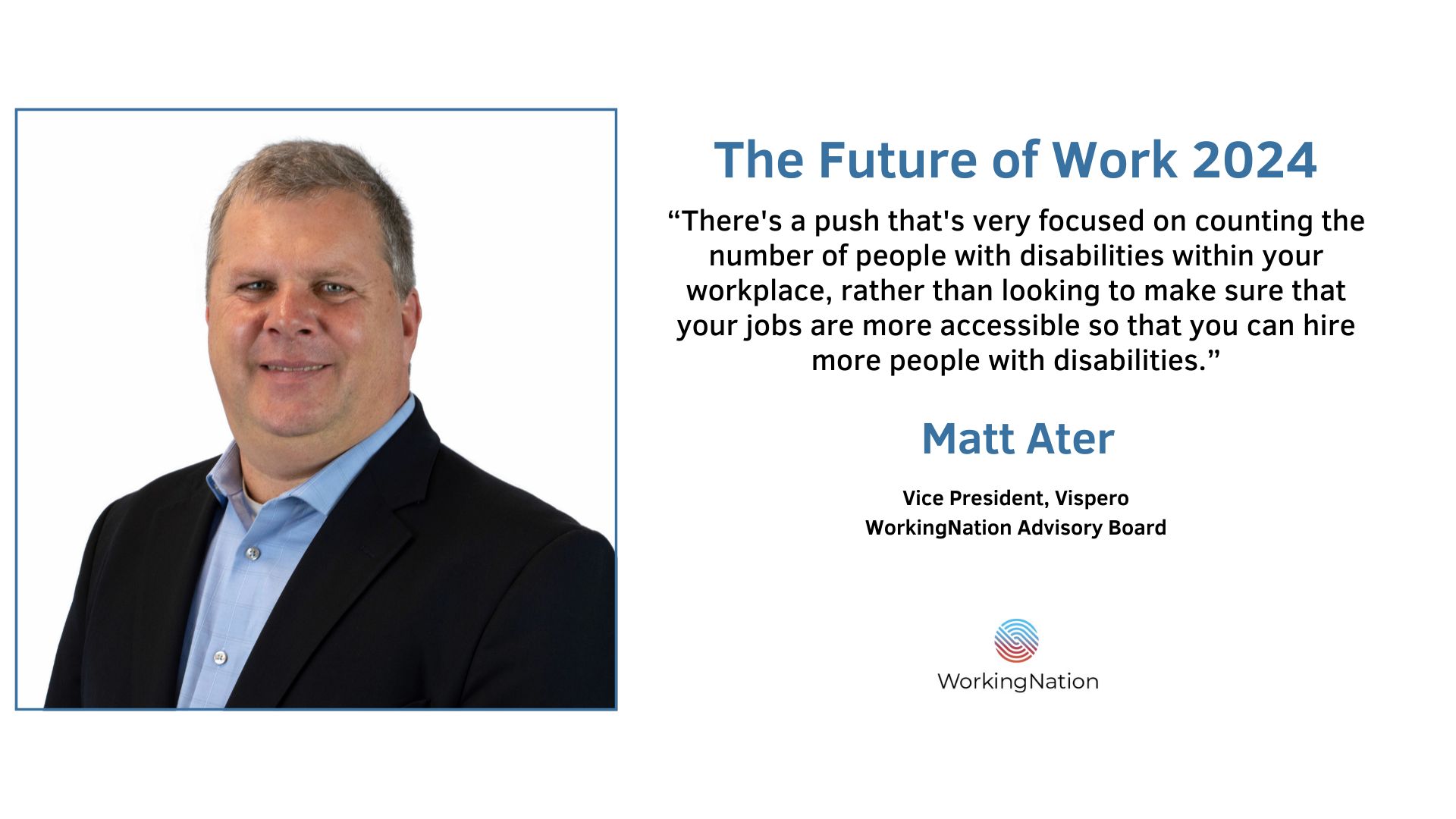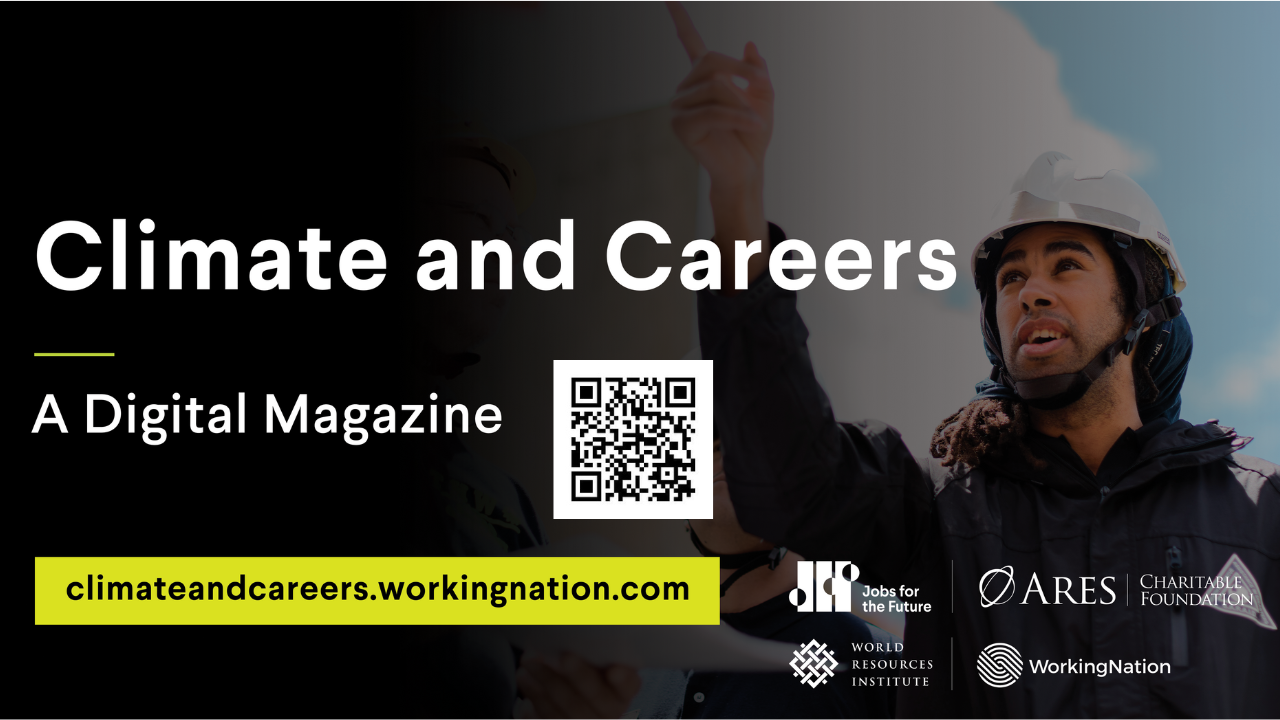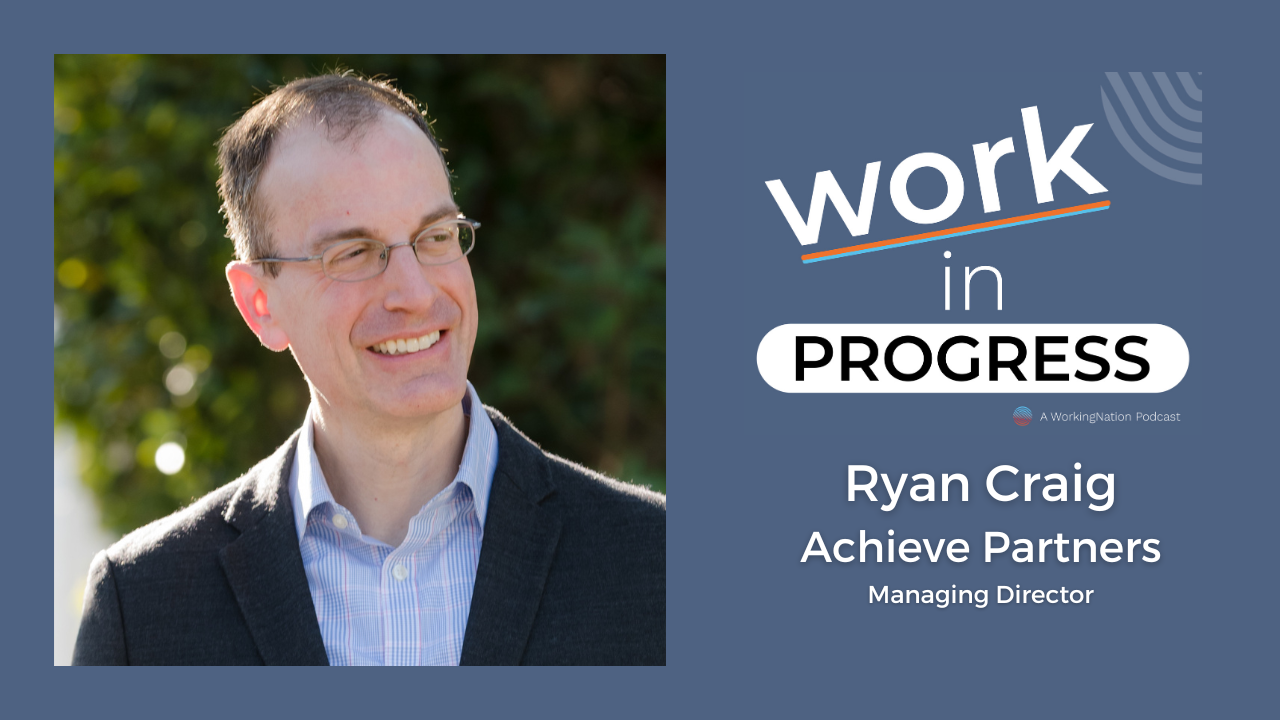Podcast: Play in new window | Download | Embed
Subscribe: Apple Podcasts | Google Podcasts | Spotify | Pandora | Youtube Music | RSS
WorkingNation has partnered with Cognizant U.S. Foundation to explore solutions to the lack of diversity in the tech industry in a series of podcasts and articles. We’re sharing these stories every Friday through early March here on WorkingNation.com.

Because of the pandemic, the number of women in the workforce is declining. Still, they remain slightly more than 50% of the U.S. workforce. Despite outnumbering men overall, they make up less than 30% of workers in tech jobs.
And while women are getting nearly 60% of all undergraduate degrees, less than 20% of graduates in tech are women. That’s even though women in other STEM fields—science, biology, chemistry, the life sciences—is much higher.
Where is the disconnect? Tech industry veteran Judith Spitz says it’s about barriers to access, misinformation about what it means to work in tech, and the notion that it is for men only.
The Role Model Challenge
Five years ago, after an impressive 30-year career in technology with Verizon, Spitz started Women in Technology New York—now known as Break Through Tech—to encourage women to consider tech as an educational path and a career.
“There is a role modeling challenge. Everybody can spit out the names of Steve Jobs, and Bill Gates, and Mark Zuckerberg. Very few women come to mind,” she says. Spitz says almost all the stereotypes about tech are wrong, including “it’s only for guys, it’s a loner sport, it’s for people who like to sit alone in their basement and hack code.”
She adds, “Of course, any of us in the tech industry know that couldn’t be further from the truth, because there is nothing in a technology project that isn’t team-based.”
Spitz speaks from experience. She started her career at Verizon in 1986 as part of the R&D lab that developed—as a team—an industry-leading automated customer service system that featured pioneering advanced speech technology. Spitz eventually worked her way up to chief information officer, managing a team of more than 5,000.
Her mission now is to break down the barriers that are keeping more women from breaking into the industry.
The Three Cs: Curriculum, Community, and Career
In this episode of Work in Progress, Spitz explains how Break Through Tech works with large, diverse public education institutions in a city—the first in New York, now in Chicago—to encourage more women to take those first steps, then to support them in their journey.
“It’s about curriculum innovation, which is the what and how you teach introductory (computer) courses in order to cast a wider net and get more women to be willing to walk in that door of that first class.”
“Second, (it’s) around community development, delivering programs that not only create a community of these young women with each other, but importantly, introduce them to a network of professional women in their local ecosystem that these women don’t have access to, in order to help them network and get their foot in the door.”
The third leg of the program is career access. In New York, for example, they work with hundreds of companies to help women get that all-important first break, a paid internship. Break Through Tech innovated the “mini-internship” during the winter or spring terms.
“It’s a paid three-week immersion in a company, attending meetings, learning about the company by talking to the head of engineering, talking to the head of product, talking to HR and so on.”
“The whole idea of this program is, as I like to call it, to give these young women some resume juice, to give them something on their resumes, as well as a little bit of swagger, a little confidence that they’ve been there, so that it makes them more competitive when they actually go and apply for those (10-week) paid summer internships.”
“And the results have been remarkable. The success rate of the “winterns” or a “sprinterns” in landing a summer tech internship after they’ve done this mini-internship experience went from under 5% to over 50%.”
These paid internships are important. Hiring managers in the tech industry look for them when they interview entry-level workers. Spitz and I discuss their importance in the podcast, so listen to learn more about their role in building the tech workforce.
Breaking Through the Stereotypes
Also in the podcast, you’ll meet Yasmeen Munasser, now 26, who was the first in her family to go to college and she didn’t start until a few years after graduating from high school. Munasser says she thought about taking computer science classes, but was hesitant because of what she saw when she peeked into a CS classroom.
“I would see that it was majority males. There were two female students in a classroom of 20 or 25 other male students. And I really questioned why this is.” But she says her love of math and her curiosity pushed her forward. “I looked up this major some more, and I saw that anyone who is interested in this major should be really passionate about technology, is good at math and is interested in these kinds of roles. And I realized this is what I want to do.”
She saw an ad for Break Through Tech at City University and signed up. Munasser says the encouragement and the community was life-changing.
“It was just a great experience, coming from a sheltered environment. I made sure moving forward that I was going to seize every opportunity, represent my community, represent for all women, for first generation students, women of color, you name it. I just really wanted to show my passion and really take advantage of opportunities.”
Break Through Tech helped Munasser get her first paid internship. She says she not only developed more hard skills in web development, JavaScript, and CSS, she also learned teamwork and communication skills at her various internships. It also lead to here becoming—as she puts it—a “STEMinist” who advocates for women to pursue STEM careers.

“There were moments where I did feel intimidated, not only was I overcoming being the first in my family to pursue college, but now as a Muslim woman, as a Yemeni woman, as an American woman, I am pursuing a male-dominated field. These were challenges to overcome,” Munasser tells me. And she did.
“Women can pursue any field. There isn’t really a particular field that women should be categorized for. Women should be able to pursue any field that they are passionate about. And computer science was something I was really passionate about. And so I went for it.”
In April, Munasser starts her first full-time job as a tech analyst with Accenture.
You can listen to the entire podcast here, or download it wherever you get your podcasts.
Follow the entire series here.
Download the transcript for this podcast here.
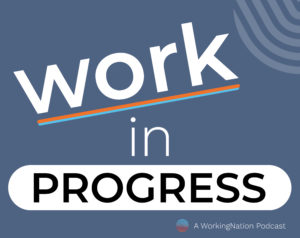
Episode 168: Judith Spitz, founder and executive director, Break Through Tech
Host: Ramona Schindelheim, Editor-in-Chief, WorkingNation
Producer: Larry Buhl
Executive Producers: Joan Lynch, Melissa Panzer, and Ramona Schindelheim
Music: Composed by Lee Rosevere and licensed under CC by 4.0.
You can check out all the other podcasts at this link: Work in Progress podcasts

